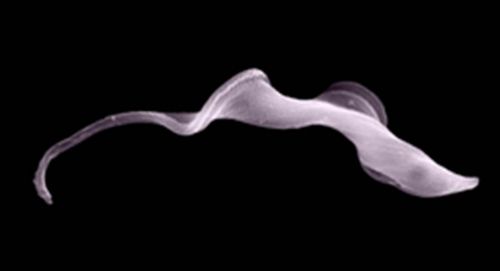
13/12/2017
ALBA Synchrotron Works for People’s Health
ALBA Synchrotron Works for People’s Health
Two recent works remind us that ALBA synchrotron is a very valuable tool to help develop new drugs.
On one hand, using the MIRAS beam line of the ALBA synchrotron (infrared radiations), researchers from the Universitat Autònoma de Barcelona (UAB) and the ALBA Synchrotron have demonstrated in a paper the capability of metalosomes - aggregates made of phospholipids and metal complexes - to interact with cells and release carbon monoxide in a controlled way (CO release can be beneficial because of its anti-inflammatory, vasodilator and cardio protective properties).
On the other hand, in another publication, a team led by researchers from the Universitat Politècnica de Catalunya (UPC) has unveiled the mechanism of action of two drugs, FR60 and JNI18, which cure 100% of mice with sleeping sickness. Using X-rays of the ALBA XALOC beam line, they have observed how these drugs perfectly stacked on the Trypanosoma brucei’s DNA, the parasite that causes the disease (image). Blocking and inflicting specific damage on its DNA, the parasite cannot reproduce and finally dies after 4-5 days.
On one hand, using the MIRAS beam line of the ALBA synchrotron (infrared radiations), researchers from the Universitat Autònoma de Barcelona (UAB) and the ALBA Synchrotron have demonstrated in a paper the capability of metalosomes - aggregates made of phospholipids and metal complexes - to interact with cells and release carbon monoxide in a controlled way (CO release can be beneficial because of its anti-inflammatory, vasodilator and cardio protective properties).
On the other hand, in another publication, a team led by researchers from the Universitat Politècnica de Catalunya (UPC) has unveiled the mechanism of action of two drugs, FR60 and JNI18, which cure 100% of mice with sleeping sickness. Using X-rays of the ALBA XALOC beam line, they have observed how these drugs perfectly stacked on the Trypanosoma brucei’s DNA, the parasite that causes the disease (image). Blocking and inflicting specific damage on its DNA, the parasite cannot reproduce and finally dies after 4-5 days.
More news
27/06/2017
Barcelona Synchrotron Park’s sustainable brownfield restoration program presented at AquaConSoil 2017
21/06/2017
Catalonia confirms itself as pole of attraction for foreign investments
15/06/2017
Construction of the Natura Bissé’s new world headquarters is well on its way
06/06/2017
Walk in the Park: the biodiversity routes await you
31/05/2017
UAB second most innovative university in Spain
24/05/2017
PRUAB: 10 years in strengthening relationships between research and business fabric









